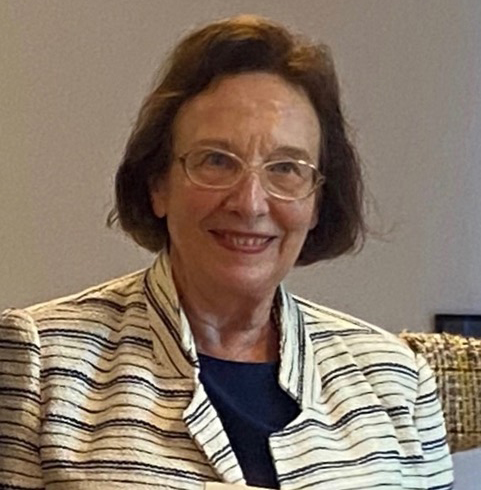IEEE Awards
IEEE Frank Rosenblatt Award

The IEEE Frank Rosenblatt Award is a Technical Field Award sponsored by the IEEE Computational Intelligence Society.
The award, established in 2004, is named in honor of Frank Rosenblatt, who is regarded as one of the founders of neural networks. Basing his research on study of fly vision, he developed the single-layer input layer and an output layer of neural cells. Frequent presentation of a pattern or patterns resulted in changes in the input to output connections, facilitating future recognition of these patterns, or memory. His work influenced and anticipated many modern neural network approaches.
This award will be presented for outstanding contributions to the advancement of the design, practice, techniques or theory in biologically and linguistically motivated computational paradigms including but not limited to neural networks, connectionist systems, evolutionary computation, fuzzy systems, and hybrid intelligent systems in which these paradigms are contained.
This award may be presented to an individual, multiple recipients, or a team of not more than three members. This award is administered by the Technical Field Awards Council of the IEEE Awards Board. Prize items include a bronze medal, certificate and honorarium.
Congratulations to Bernadette Bouchon-Meunier
Recipient of the 2024 IEEE Frank Rosenblatt Technical Field Award

She is an IEEE Life Fellow, an International Fuzzy Systems Association fellow, an Honorary Member of the European Association for Fuzzy Logic and Technology (EUSFLAT) and a fellow of the Asia-Pacific Artificial Intelligence Association (AAIA). She was appointed as Distinguished Lecturer of the IEEE CIS for the period 2014-2016. She received the 2012 IEEE Computational Intelligence Society Meritorious Service Award, the 2017 EUSFLAT Scientific Excellence Award, the 2018 IEEE Computational Intelligence Society Fuzzy Systems Pioneer Award, the 2019 Outstanding Volunteer Award of the IEEE France Section and the IEEE 2024 Frank Rosenblatt award.
Her present research interests include approximate and similarity-based reasoning, as well as the application of fuzzy logic and machine learning techniques to decision-making, data mining, risk forecasting, information retrieval, user modelling, sensorial and emotional information processing, management of information quality and eXplainable Artificial Intelligence.
Read full bio here.
IEEE CIS Neural Networks Pioneer Award Nomination Instructions
The IEEE Computational Intelligence Society Neural Networks Pioneer Award recognizes significant contributions to early concepts and sustained developments in the field of neural networks. This award recognizes two types of pioneering contributions: (1) fundamental understanding and (2) engineering application. This Neural Networks Pioneer Award is considered annually and may be given to an individual or a group not exceeding three persons who contributed to the advancement of theory, technologies, and/or applications of neural networks by inventing new technologies, creating innovative technical developments, implementing new products, or managing innovative product design or production processes. The prize includes a plaque plus US$2,500 honorarium, plus travel support for each recipient and one companion to attend award presentation in the year of the award. For those who are interested in submitting a nomination for the IEEE CIS Neural Networks Pioneer Award, the materials needed are the following:
•Nomination Letter with the following information:
•Nominator: name, affiliation and email address of nominator
•Nominee: name, affiliation, postal address, email address and webpage address of nominee
•Basis for Nomination: detailed documentation that includes:
•Category of nomination: Identification of the category of pioneering contribution as either (1) fundamental understanding or (2) engineering application.
• Scope of the evaluation window: Significance of contribution made at least 15 years prior to the award date. The Pioneer Award is not a lifetime achievement award. The nomination should specifically describe the technical contribution(s) that occurred at least 15 years prior to the year of the Award. • Nomination Focus: The nomination should focus on at least one, and at most three major technical contributions, which had realized the impact and verifiable evidence. The impact and evidence of those contributions, as well as possible spinoffs (e.g. patents or follow-up papers), might be more recent, but they must be clearly associated by the nominator with the original contribution. Please discuss the pioneering nature of cited contribution in light of the category of nomination, the impact on the industry, economy, government, and society, and the impact on neural networks research and development from the point of view of theory, technologies, and/or applications.
•Proposed Citation: provide a suggestion for the complete, correct, and succinct citation. The Awards Committee reserves the right to make any necessary change on the citation.
•Up to five reference letters supporting the nomination.
Failing in providing the above due material will negatively affect the nomination evaluation.
Your nomination is to be submitted as a single PDF file via the 2024 IEEE CIS Awards Nomination online form by April 30 (strict deadline). Self-nominations are not allowed.
IEEE CIS Evolutionary Computation Pioneer Award Nomination Instructions
The IEEE Computational Intelligence Society Evolutionary Computation Pioneer Award recognizes significant contributions to early concepts and sustained developments in the field of evolutionary computation. This award recognizes two types of pioneering contributions: (1) fundamental understanding and (2) engineering application. This Evolutionary Computation Pioneer Award is considered annually, and may be given to an individual or a group not exceeding three persons who contributed to the advancement of theory, technologies, and/or applications of evolutionary computation by inventing new technologies, creating innovative technical developments, implementing new products, or managing innovative product design or production processes. The prize includes a plaque plus US $2,500 honorarium, plus travel support for each recipient and one companion to attend award presentation in the year of the award. For those who are interested in submitting a nomination for the IEEE CIS Evolutionary Computation Pioneer Award, the materials needed are the following:
•Nomination Letter with the following information:
•Nominator: name, affiliation and email address of nominator
•Nominee: name, affiliation, postal address, email address and webpage address of nominee
•Basis for Nomination: detailed documentation that includes:
•Category of nomination: Identification of the category of pioneering contribution as either (1) fundamental understanding or (2) engineering application.
• Scope of the evaluation window: Significance of contribution made at least 15 years prior to the award date. The Pioneer Award is not a lifetime achievement award. The nomination should specifically describe technical contribution(s) that occurred at least 15 years prior to the year of the Award. • Nomination Focus: The nomination should focus on at least one, and at most three major technical contributions, which had realized impact and verifiable evidence. The impact and evidence of those contributions, as well as possible spinoffs (e.g. patents or follow-up papers), might be more recent, but they must be clearly associated by the nominator with the original contribution. Please discuss the pioneering nature of cited contribution in light of the category of nomination, the impact on the industry, economy, government, and society, and the impact on neural networks research and development from the point of view of theory, technologies, and/or applications.
•Proposed Citation: provide suggestion for the complete, correct, and succinct citation. The Awards Committee reserves the right to make any necessary change on the citation.
•Up to five reference letters supporting the nomination.
Failing in providing the above due material will negatively affect the nomination evaluation.
Your nomination is to be submitted as a single PDF file via the 2024 IEEE CIS Awards Nomination online form by April 30 (strict deadline). Self-nominations are not allowed.
IEEE CIS Fuzzy Systems Pioneer Award Nomination Instructions
The IEEE Computational Intelligence Society Fuzzy Systems Pioneer Award recognizes significant contributions to early concepts and sustained developments in the field of fuzzy systems. This award recognizes two types of pioneering contributions: (1) fundamental understanding and (2) engineering application. This Fuzzy Systems Pioneer Award is considered annually, and may be given to an individual or a group not exceeding three persons who contributed to the advancement of theory, technologies, and/or applications of fuzzy systems by inventing new technologies, creating innovative technical developments, implementing new products, or managing innovative product design or production processes. The prize includes a plaque plus US $2,500 honorarium, plus travel support for each recipient and one companion to attend award presentation in the year of the award. For those who are interested in submitting a nomination for the IEEE CIS Fuzzy Systems Pioneer Award, the materials needed are the following:
•Nomination Letter with the following information:
•Nominator: name, affiliation and email address of nominator
•Nominee: name, affiliation, postal address, email address and webpage address of nominee
•Basis for Nomination: detailed documentation that includes:
•Category of nomination: Identification of the category of pioneering contribution as either (1) fundamental understanding or (2) engineering application.
• Scope of the evaluation window: Significance of contribution made at least 15 years prior to the award date. The Pioneer Award is not a lifetime achievement award. The nomination should specifically describe technical contribution(s) that occurred at least 15 years prior to the year of the Award. • Nomination Focus: The nomination should focus on at least one, and at most three major technical contributions, which had realized impact and verifiable evidence. The impact and evidence of those contributions, as well as possible spinoffs (e.g. patents or follow-up papers), might be more recent, but they must be clearly associated by the nominator with the original contribution. Please discuss the pioneering nature of cited contribution in light of the category of nomination, the impact on the industry, economy, government, and society, and the impact on neural networks research and development from the point of view of theory, technologies, and/or applications.
•Proposed Citation: provide suggestion for the complete, correct, and succinct citation. The Awards Committee reserves the right to make any necessary change on the citation.
•Up to five reference letters supporting the nomination.
Failing in providing the above due material will negatively affect the nomination evaluation.
Your nomination is to be submitted as a single PDF file via the 2024 IEEE CIS Awards Nomination online form by April 30 (strict deadline). Self-nominations are not allowed.
IEEE CIS Meritorious Service Award Nomination Instructions
The IEEE Computational Intelligence Society (CIS) recognizes meritorious service to the Society through its Meritorious Service Award established in 2000. The prize includes a $1,500 honorarium and a certificate. The candidate must be or have been a member or associate member of CIS. For those who are interested in submitting a nomination for the IEEE CIS Meritorious Service Award, the materials needed are the following:
• Nomination Letter with the following information:
• Nominator: name, affiliation and email address of nominator
• Nominee: name, affiliation, postal address, email address and webpage address of nominee
• Basis for Nomination: detailed documentation to justify meritorious service to CIS (e.g., exceptional administrative, managerial, and leadership achievement; proposal and/or implementation of innovative new CIS programs; dedication to the growth and advancement of CIS and its geographic and technical entities)
• Proposed Citation: provide suggestion for the complete, correct, and succinct citation. The Awards Committee reserves the right to make any necessary change on the citation.
• Up to five reference letters supporting the nomination.
The complete nomination packet must be saved in a single pdf file containing the above information in the given order. The name of the file must be surname_of_nomineeMeritorious.pdf.
Your nomination is to be submitted as a single PDF file via the 2024 IEEE CIS Awards Nomination online form by April 30 (strict deadline). Self-nominations are not allowed.